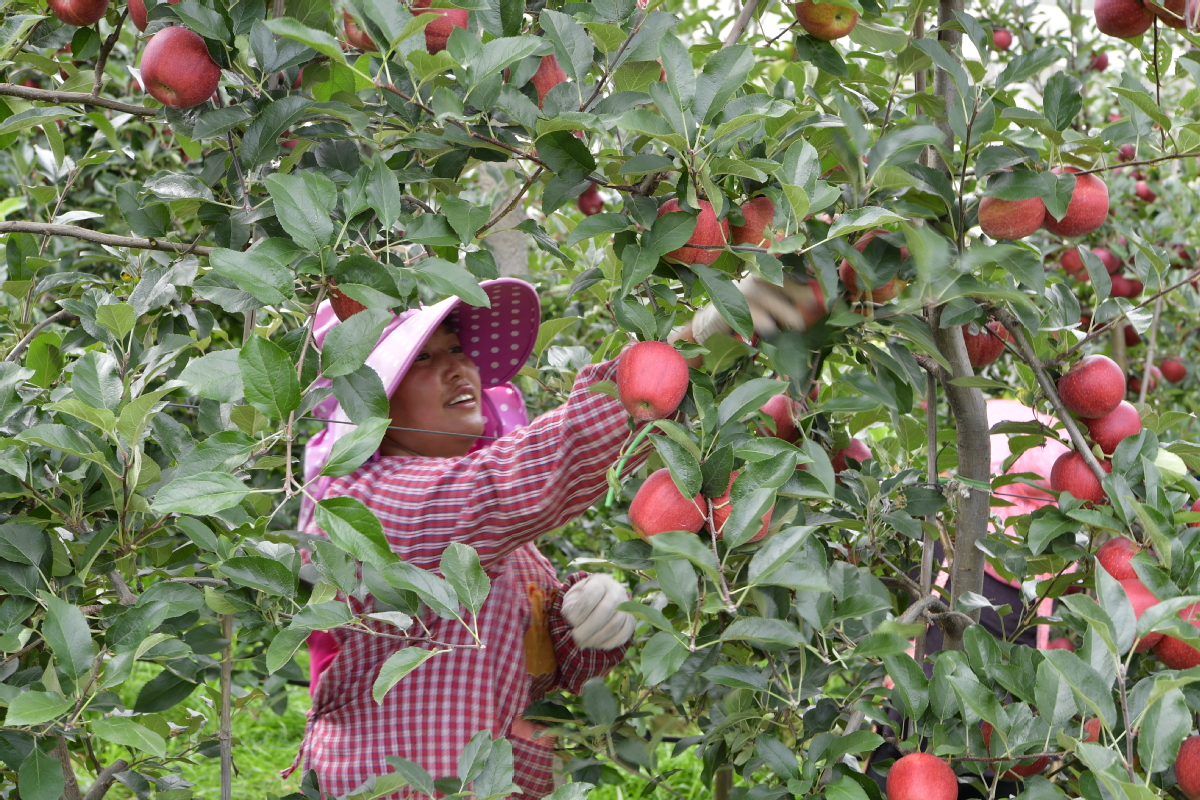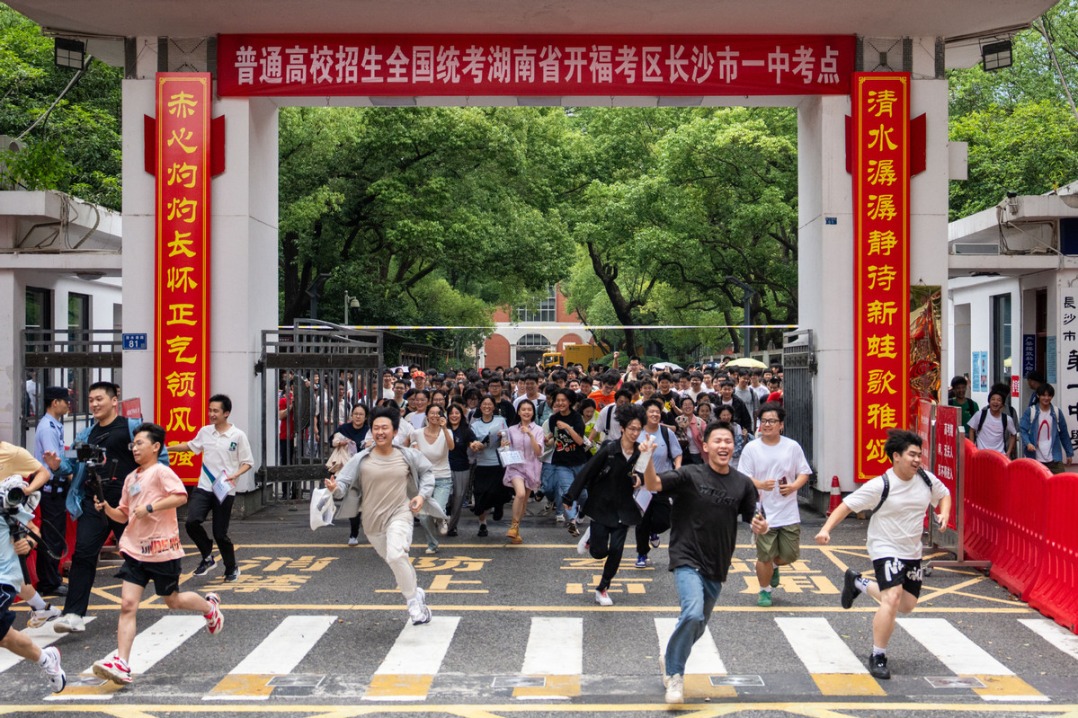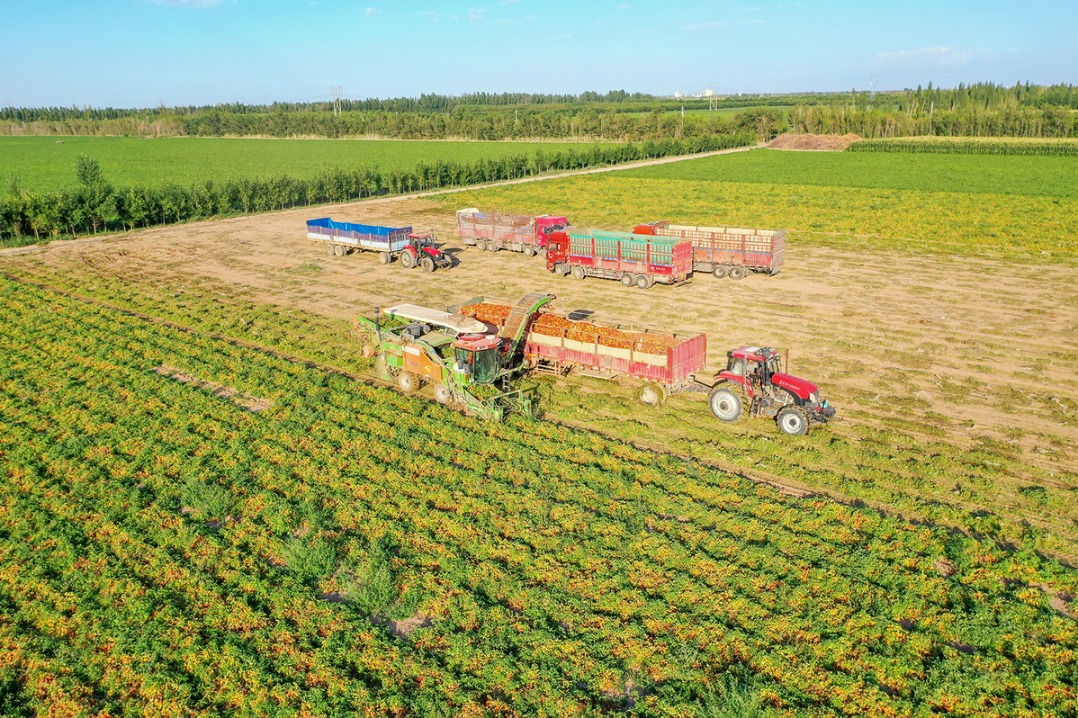Yunnan plateau sees largest apple production base


In the high-altitude terrain of Southwest China's Yunnan province, Zhaotong city has transformed from a traditional farming region into the largest high-quality apple production base in southern China, reshaping the lives of once impoverished residents.
Nestled on the Yunnan-Guizhou Plateau, Zhaotong's combination of low latitude, high elevation, ample sunshine, and significant daily temperature swings has provided ideal conditions for growing sweet, crisp apples. The citywide industry now spans nearly 66,700 hectares, with an output of 1.3 million tons last year and a comprehensive economic value of 15 billion yuan ($2.07 billion).
The apple industry has so far benefited 138,000 households, or about 527,000 people. In April last year, apples from Zhaotong were part of the fresh food supply for astronauts aboard the Shenzhou-18 spacecraft, becoming a powerful engine of economic growth and rural vitalization, according to the local agriculture and rural affairs department.
In Zhaoyang, the core district in the city, a massive 6,670-hectare orchard is regarded as the largest high-density apple base in the country, with 118 apple varieties. It has employed advanced techniques from New Zealand and other countries, such as dwarf rootstocks and an integrated water and fertilizer drip irrigation system, said Yang Longjiang, director of the district's industry development center.
Ding Kaiwen, a 49-year-old farmer at the orchard, spent more than a decade cultivating tobacco. In 2019, he and his wife began working at the new apple base since its establishment.
The family leased their land for use by the orchard for an annual payment of 14,400 yuan. "Combined with monthly wages from working at the base, we can earn 80,000 yuan a year and live a better life," Ding said.
In Zhaoyang, the apple industry has helped increase the annual income of families that were once registered as living in poverty by an average of 4,800 yuan, local officials said.
Meanwhile, authorities have focused on building a powerful brand identity, with brand names like "Zhaoyang Red" having gained 93 green food certifications and multiple organic product certifications.
The high-quality apple products, which are sold at 8 to 14 yuan per kilogram, have opened doors to high-end markets. The apples are now sold in premium supermarket chains like Sam's Club and Hema Fresh, and are exported to the United Arab Emirates, Thailand, and other Southeast Asian nations, Yang said. The industry is also integrating with urban development and tourism, local officials said. Apple-related markets have emerged, and the region is promoting tourism routes that feature orchard sightseeing and fruit picking, creating a diversified economy and improving local people's livelihood with the humble fruit.
- Wielding tariffs to impose law of the jungle blindly ignores benefits of mutual respect: China Daily editorial
- An apple harvest powered by electricity
- New global markets, sales methods emerge from smoke of US tariff war
- Amid tariff hikes, US consumers flock to Chinese e-commerce platforms
- Domestic game creators step up charm offensive in overseas markets
- Yunnan plateau sees largest apple production base
- A million viewers watch robots challenge crossing world's longest catwalk
- Masterpieces on display
- NBA star Wembanyama shaves head for 10-day Shaolin Temple retreat
- Shanghai-Milan cultural exchange marked by art show
- Shanxi traffic crash kills 3, injures 6





































